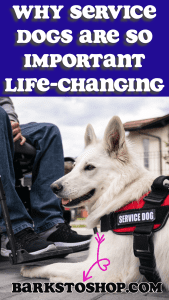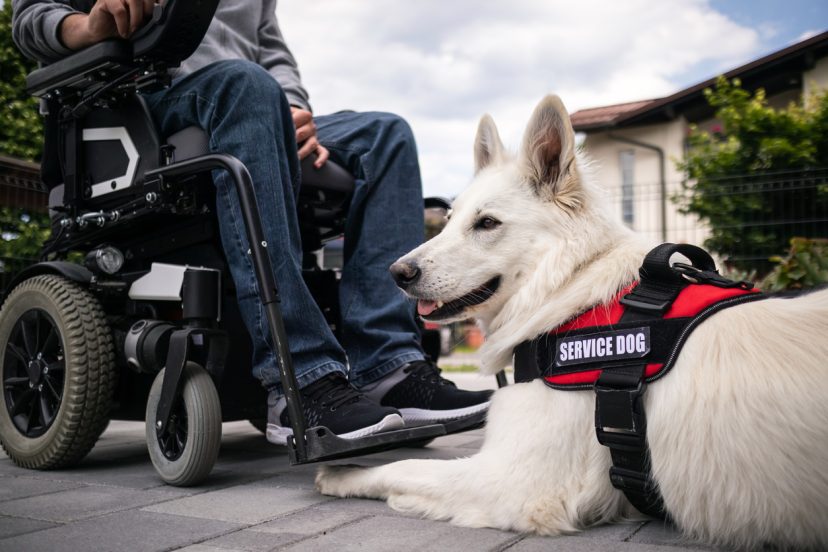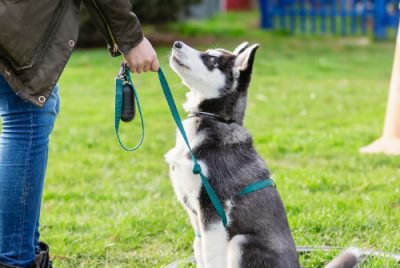What Tasks Do Service Dogs Perform? Essential Guide
Post Disclaimer
We may earn a commission for purchases made using our links. Please see our Disclaimer to learn more.
The Importance of Service Dog Tasks
What are the different types of service dogs and what tasks do they perform?
Service dogs are companions, for individuals with disabilities as they provide essential assistance in various ways. These remarkable animals perform a range of tasks to promote independence for their owners. Some of the tasks they undertake include guiding individuals who have impairments alerting those who are hearing impaired and offering emotional support. These incredible creatures play a role in enhancing the lives of their owners. In this article we will delve into the types of service dogs explore the duties they fulfill and gain insights, into their training methods. Additionally, we will highlight the significance of treating these working animals with respect. Join us on this journey into the realm of service dogs!
Understanding Different Types of Service Dogs
Service dogs are essential companions that assist people with disabilities in performing specific tasks. They greatly enhance their handlers’ quality of life by providing tailored assistance and support in different areas. These dogs can guide the visually impaired, ensure safety, and offer emotional support. They play a crucial role as reliable helpers and beloved family members.
There is a great article by MSN talking about how to afford a Service Dog along with all the service outlets, such as financial outlet, different organizations for your needs. Life-changing companions: How to afford a service dog (msn.com)
Guide Dogs for the Visually Impaired
Guide dogs are great support for people with visual disabilities. They help to navigate public places safely. These trained dogs can alert to elevation changes and even close doors. They provide mobility assistance which helps to build the confidence of their handlers. They are loyal and can help in crowd control and position changes making them invaluable companions. Their unique abilities make them the eyes for their human partners, ensuring hassle-free movement in public places.
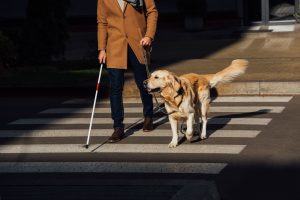
Hearing Dogs for the Deaf
Hearing dogs are well-trained dogs that alert their handlers to specific sounds. This helps to keep them safe and aware of their surroundings. These service dogs can hear sounds like a baby crying or alarms and alert their owners. They also offer emotional support and tactile stimulation to make sure their partners feel safe even in uncomfortable situations.
Mobility Assistance Dogs
Mobility assistance dogs are special service dogs that help physically. They do many things like picking up dropped items, giving pressure therapy, and helping to change positions. These dogs make daily activities easier and less stressful for their human partners. Dog training can have an incredible impact on individuals needing mobility support.
Medical Alert Dogs
Medical alert dogs go through tough training to help their human partners. They assist in alerting handlers to health episodes, providing emotional support and ensuring safety. They are more than pets; they are family members who offer crucial help and enhance the quality of life for those in need. Their ability to sense and respond to particular medical conditions makes them important allies in managing health.
Psychiatric Service Dogs
Psychiatric service dogs give emotional support to those with psychiatric disabilities. They offer a secure and relaxing environment during tough times. With unique training, they can alert handlers to emotional episodes, give comfort through touch, and provide a feeling of safety. These dogs help people manage and deal with psychiatric challenges by giving physical aid and reminding them of reality. Their role is crucial in providing essential support to those in need.
Autism Support Dogs
Individuals with autism receive emotional assistance from support dogs. These dogs offer deep pressure therapy and alert their handler to specific tasks. They provide comfort during distressing situations, playing a crucial role in giving invaluable support. When uncomfortable episodes happen, these dogs can offer emotional aid through their training, making a profound impact on the lives of individuals with autism.
Essential Tasks Performed by Service Dogs
Service dogs are trained to assist with various tasks like medical alerts and mobility assistance. This ensures individual safety, comfort, and independence. They become an invaluable family member by providing essential support and unwavering loyalty. Their training enables them to perform specific tasks, such as opening stall doors or assisting with PTSD. This highlights their dedication to their handler’s needs.
Physical Assistance
Service dogs are trained to help with various tasks. They can retrieve fallen objects, open doors, and offer assistance with mobility. They also provide deep pressure therapy and can carry bags, making daily life easier. These dogs are important for improving independence, providing emotional support, and becoming a valued family member.
Alerts for Medical Conditions
Service dogs undergo specialized training to help with various medical conditions. They can detect changes in blood sugar levels or blood pressure and provide life-saving alerts. During medical episodes, they create a safe and comforting environment for their human partners. Alert dogs offer emotional assistance and timely medical support, making them invaluable family members.
Emotional Support and Calming Measures
How Service Dogs Provide Emotional Support
Their invaluable Aid
Service dogs offer emotional support by providing deep pressure therapy, tactile stimulation, and safe place training. They help individuals find a secure space during distressing situations, alleviate stress and anxiety, and promote a sense of safety and calm. Service dogs also alert their handler to symptoms of disabilities and offer reality checks. Overall, service dogs provide invaluable aid for emotional support.
Ensuring Safety and Security
Service dogs are important for safety and security. They can do things like closing doors, warning about fires, and helping in crowds. They can also alert their handlers to changes in card, clock, or sugar levels. This keeps their people safe. Service dogs can also help with emotions by guiding people to safe spaces when they feel uneasy.
How Service Dogs are Trained for Specific Tasks
Service dogs are trained to help people with disabilities. They can guide, assist with mobility, and alert their handlers to medical issues. Dogs also offer emotional support and help people with daily tasks. They receive specialized training to be able to alert handlers in specific situations and provide crucial assistance. This comprehensive training transforms service dogs into invaluable family members who support their handlers in every aspect of life.
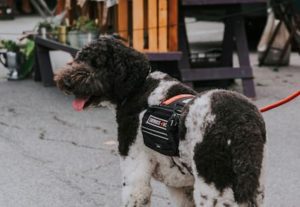
Training Process for Guide and Hearing Dogs
Guide and hearing dogs are trained to help people with disabilities. Guide dogs assist with mobility, while hearing dogs alert their handler to specific sounds. Both dog types also perform medical alerts to ensure safety and support.
Training Techniques for Mobility Assistance Dogs
Mobility assistance dogs help people with disabilities. They learn to guide humans, control crowds, and alert handlers of hazards. Dogs also learn life-saving skills like responding to fire alarms and closing doors. With these skills, mobility dogs become valuable companions to those in need.
Methods for Teaching Medical Alert Tasks
Service dogs undergo comprehensive training to learn medical alert tasks. They are taught to close doors, guide people, control crowds, and detect medical conditions such as blood pressure fluctuations. The dogs also learn to alert their handlers of potential dangers like fire alarms and dropped items for the handler’s safety.
Training Regimen for Psychiatric Service Dogs
Psychiatric service dogs are well-trained with a rigorous regimen. They offer essential support to individuals with disabilities and become an integral part of the family. They guide, control crowds and alert handlers of specific medical conditions. They recognize cues related to the handler’s well-being and provide assistance making them valuable members of the support system.
The Impact of Service Dogs on Individual’s Lives
Service dogs are important to people. They help with getting around and give emotional support. Service dogs do many things like helping their person in crowds, alerting them about danger, and giving medical assistance. They help people live a better life by being there for them all the time.
Increasing Independence and Mobility
Service dogs help their handlers in many ways. They alert to panic attacks, blood sugar levels, and position changes, provide medical support, and guide through daily life. Service dogs also help control crowds, close doors, and perform guide tasks to enhance independence for individuals with disabilities. Moreover, they offer emotional support, mobility assistance, and alert to dropped items.
Providing Emotional Stability
Service dogs improve emotional stability by alerting their owner of particular people and crowds. They give valuable emotional support and aid people with disabilities in daily tasks. Similarly, they help control crowds and provide medical alerts, mobility assistance, and emotional comfort. Service dogs provide not only stability but also a soothing presence in different situations.
Enhancing Social Interaction
Service dogs are important for people with disabilities. They help by doing things like getting objects and opening doors. This helps these people feel more independent and better about themselves. Service dogs also make them feel more included in society. They can also give emotional support when people feel stressed or anxious. The bond between a service dog and their owner is very powerful and can change someone’s life.
How Important is it to Respect a Service Dog while Working?
It is important to respect service dogs while they work. They can be distracted by things around them, which means they might miss important things they need to do. Before interacting with a service dog, always ask for permission from the owner first. It is also important to respect the owner’s wishes when it comes to their dog’s interaction with others.
Conclusion
Service dogs are important for people with disabilities. They help them do necessary things, feel better, and be around others more. Service dogs can do many jobs like leading blind people, sensing health problems or danger. They are well trained to do their job and serve their owners. It is important to remember that when they have their working gear on, they need to stay focused and not be distracted. Service dogs are amazing helpers who make a real difference in people’s lives, so we should appreciate them!
